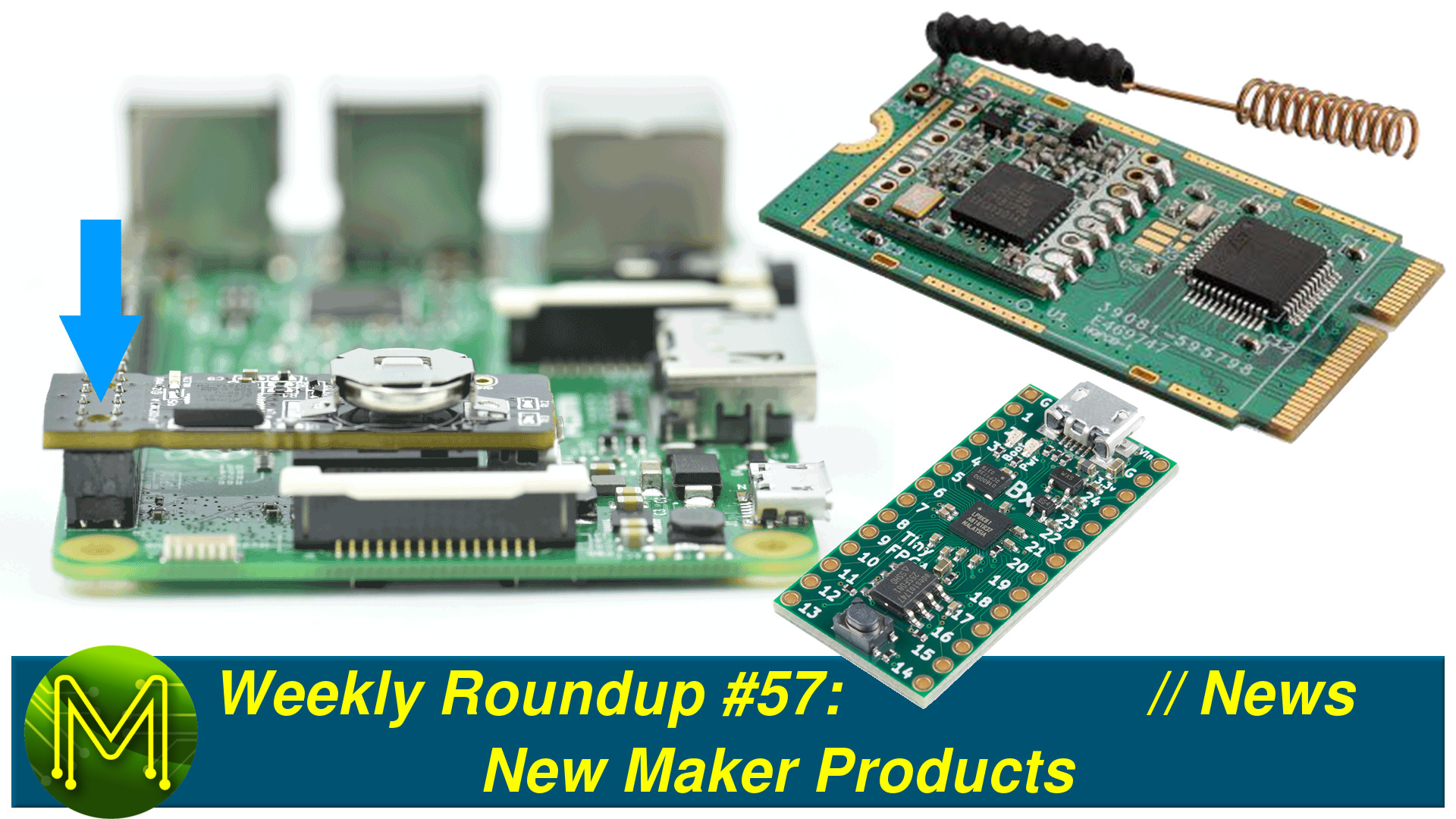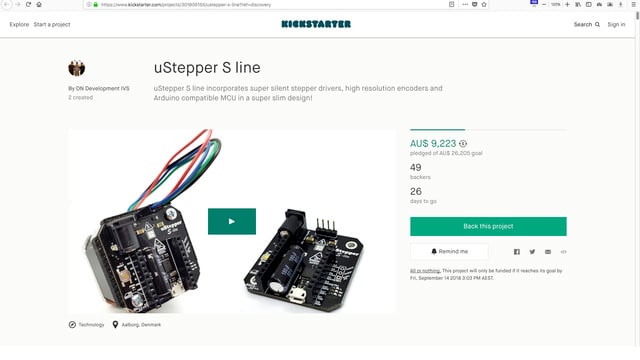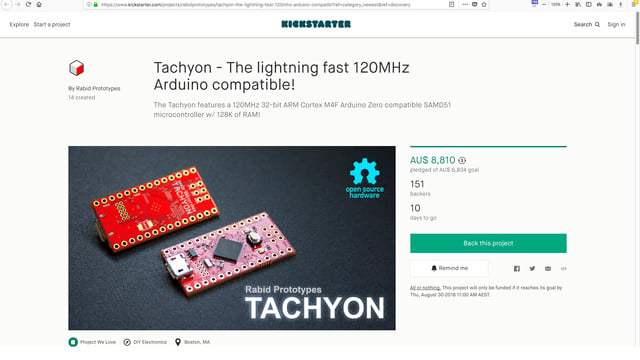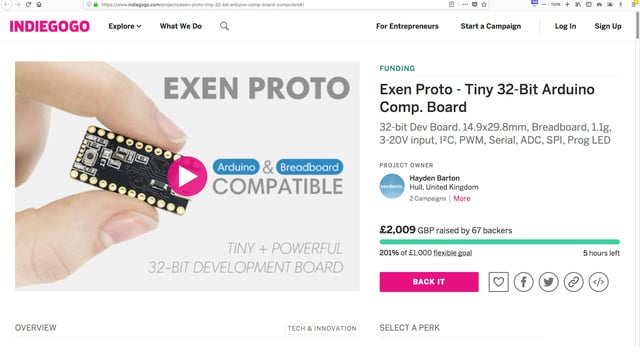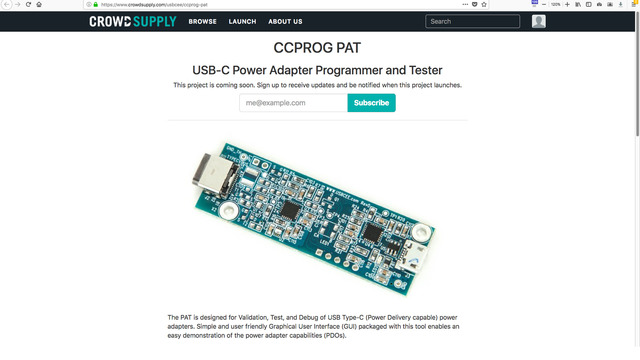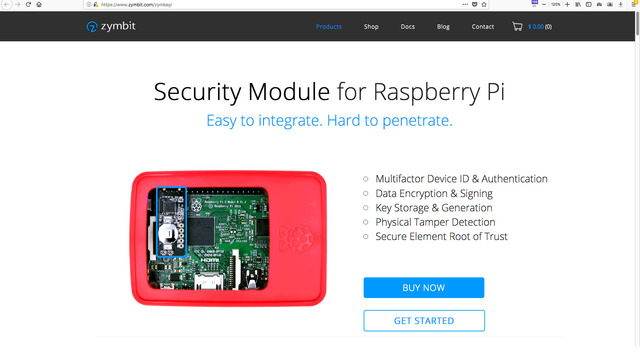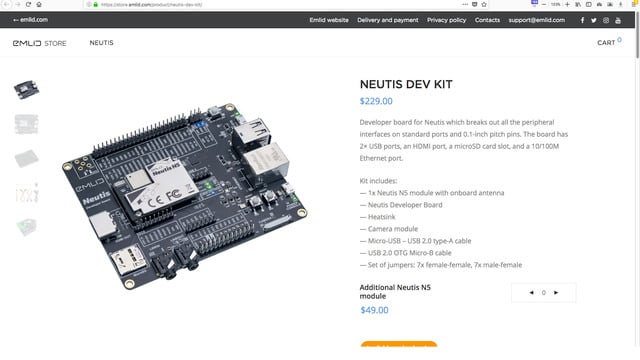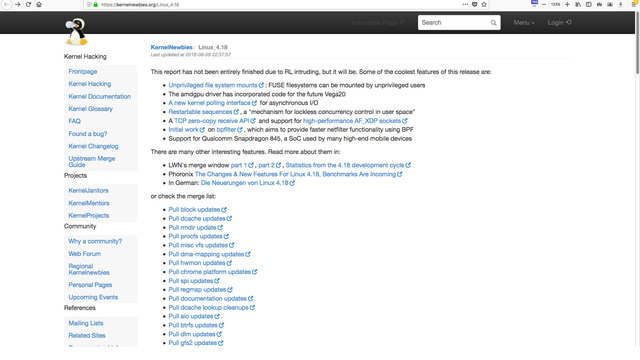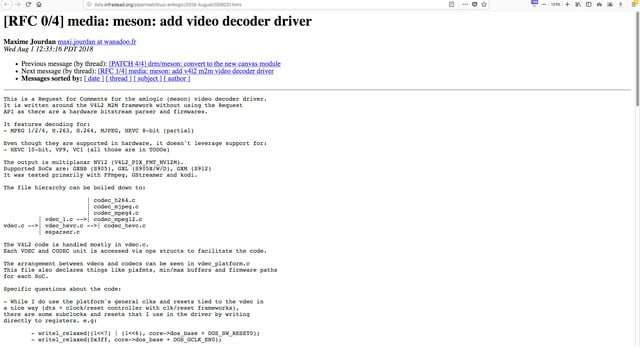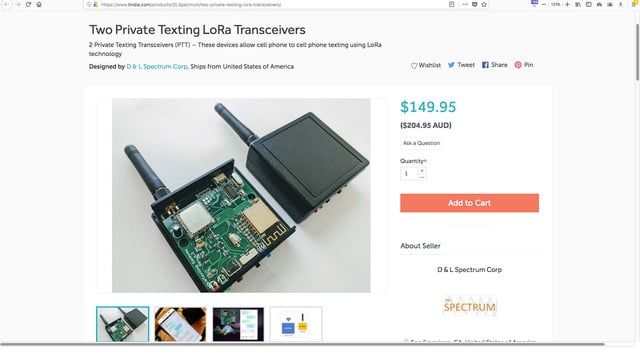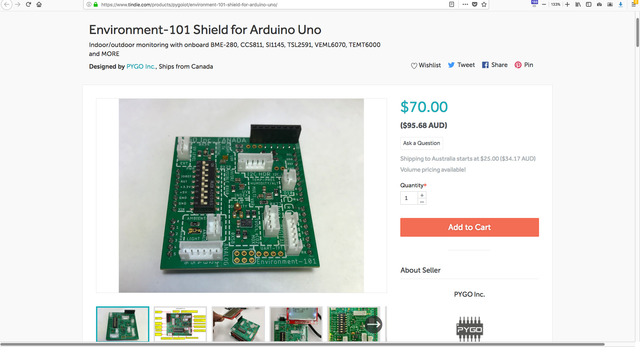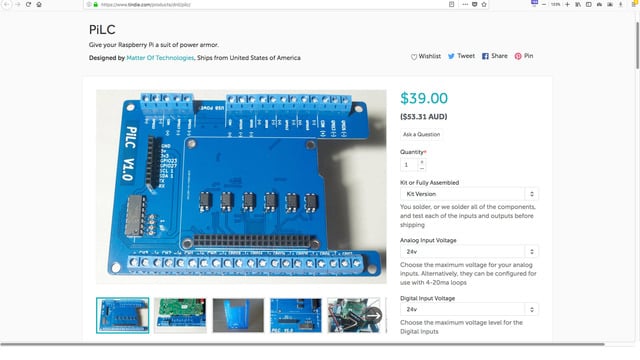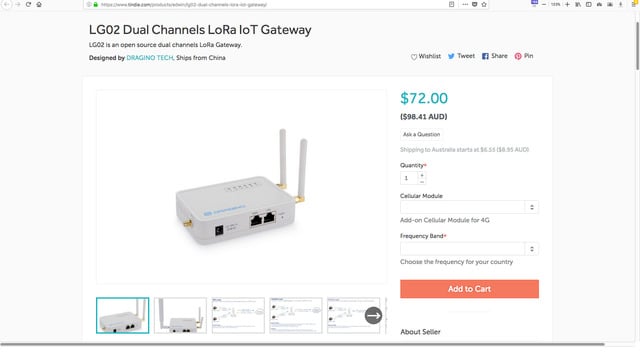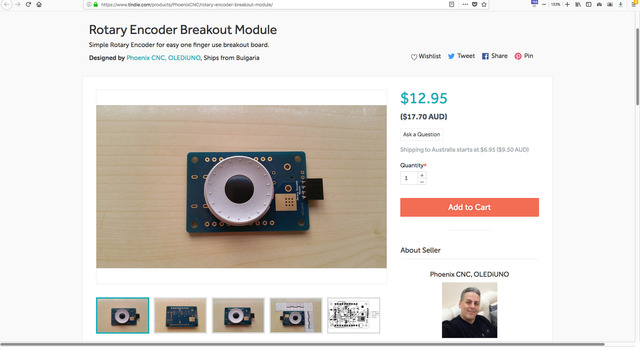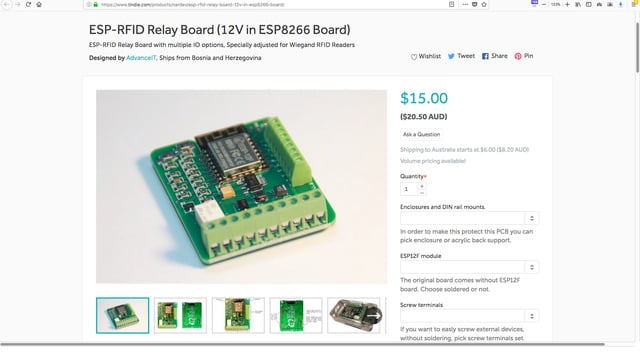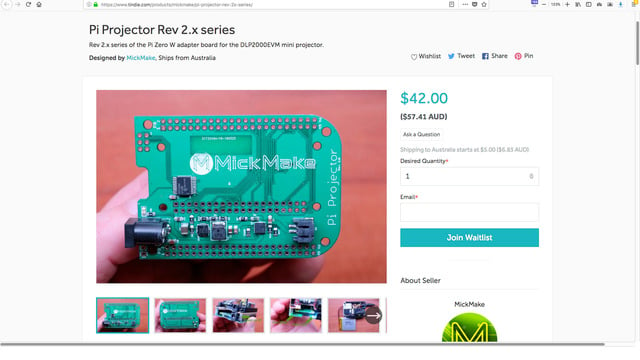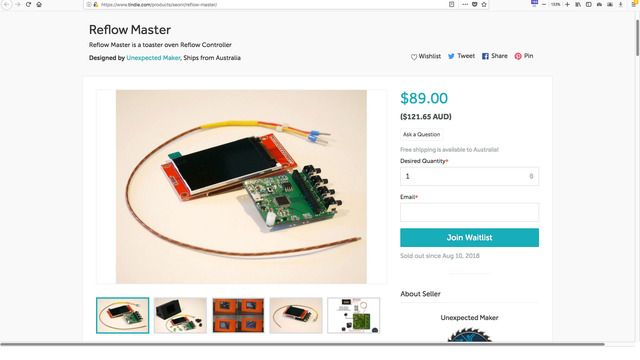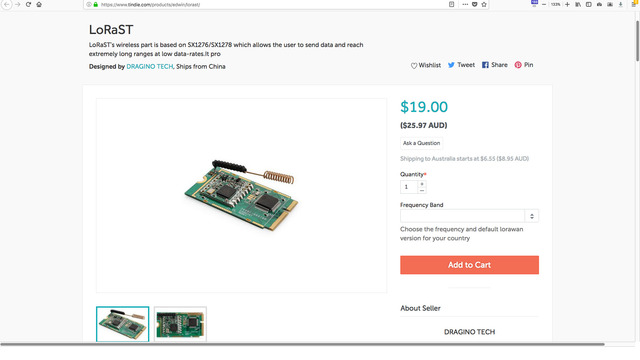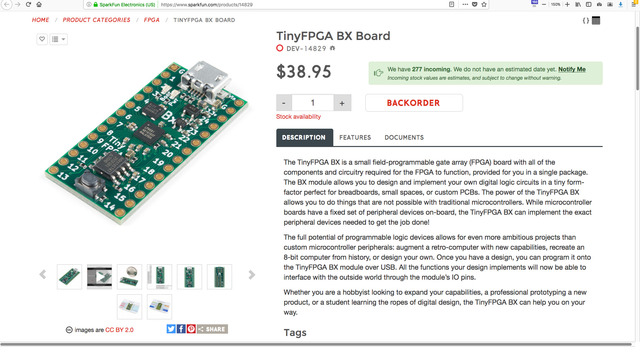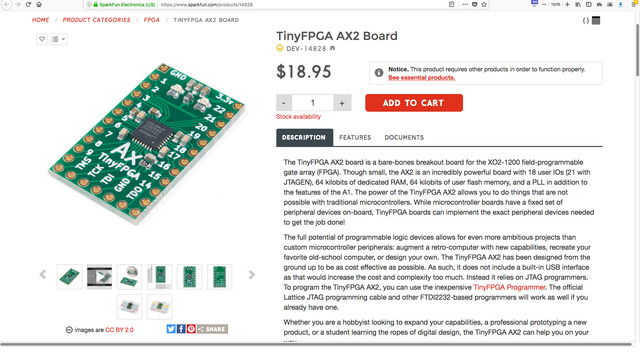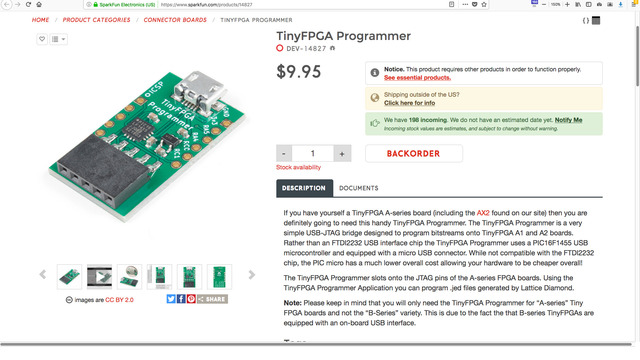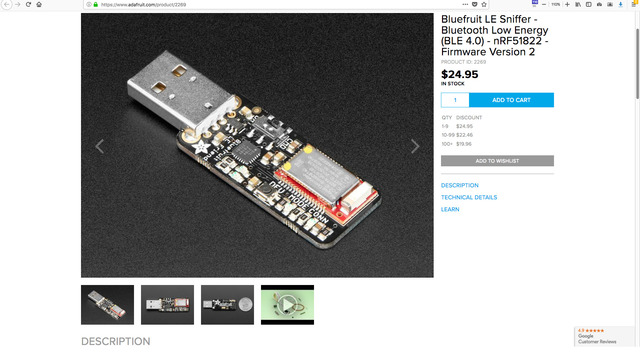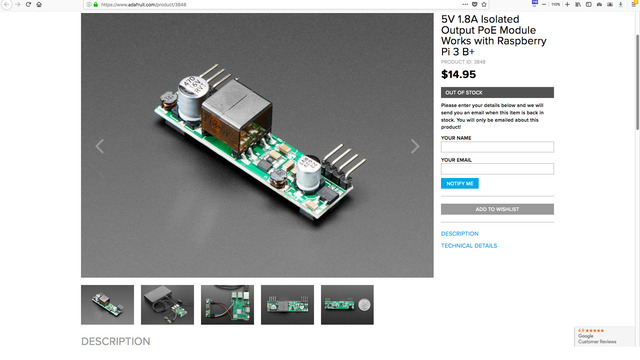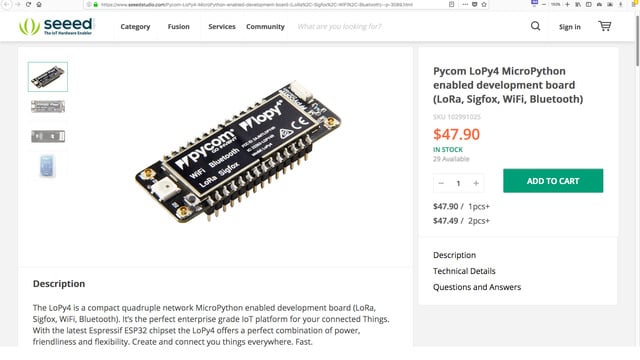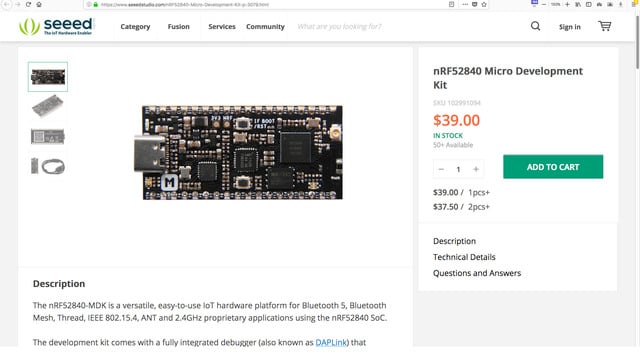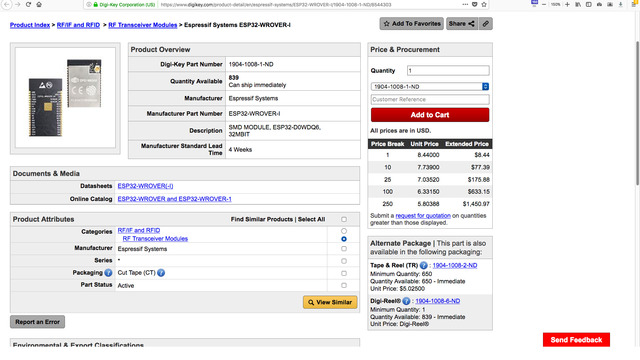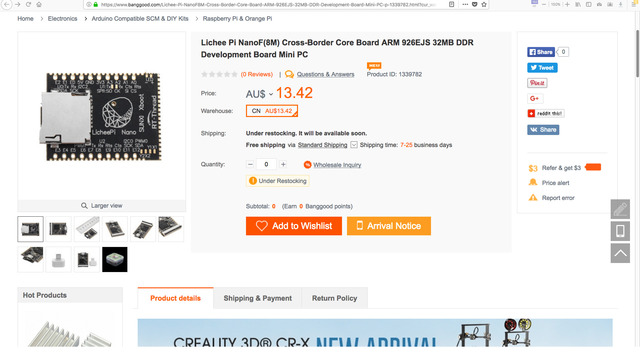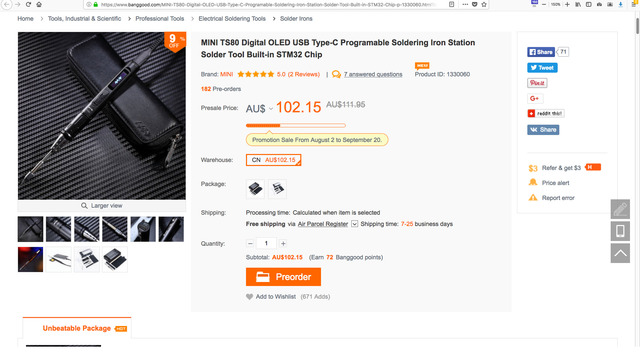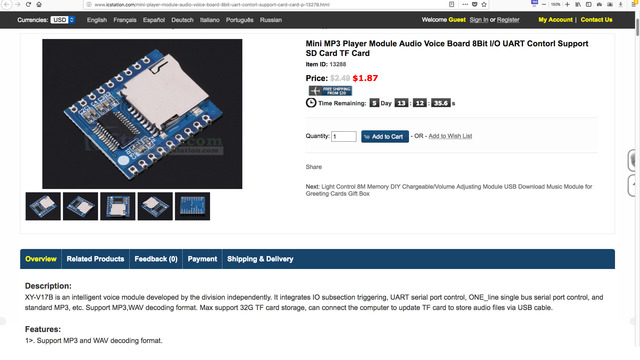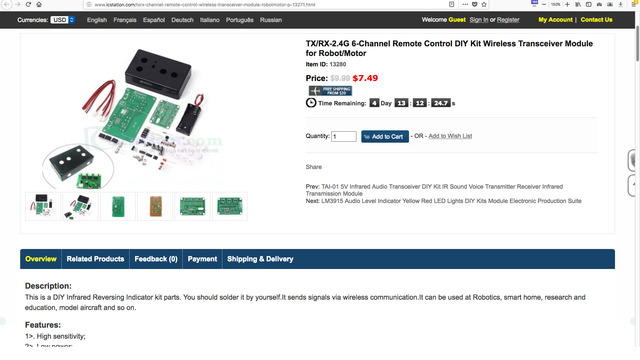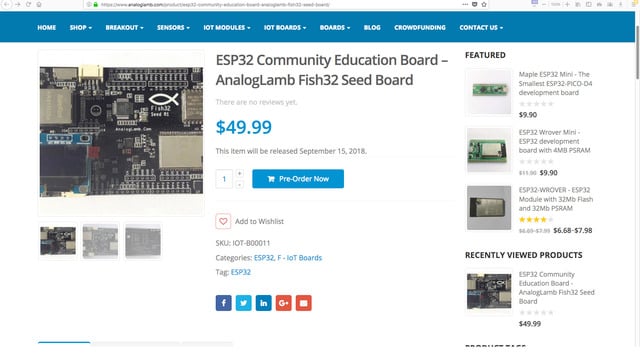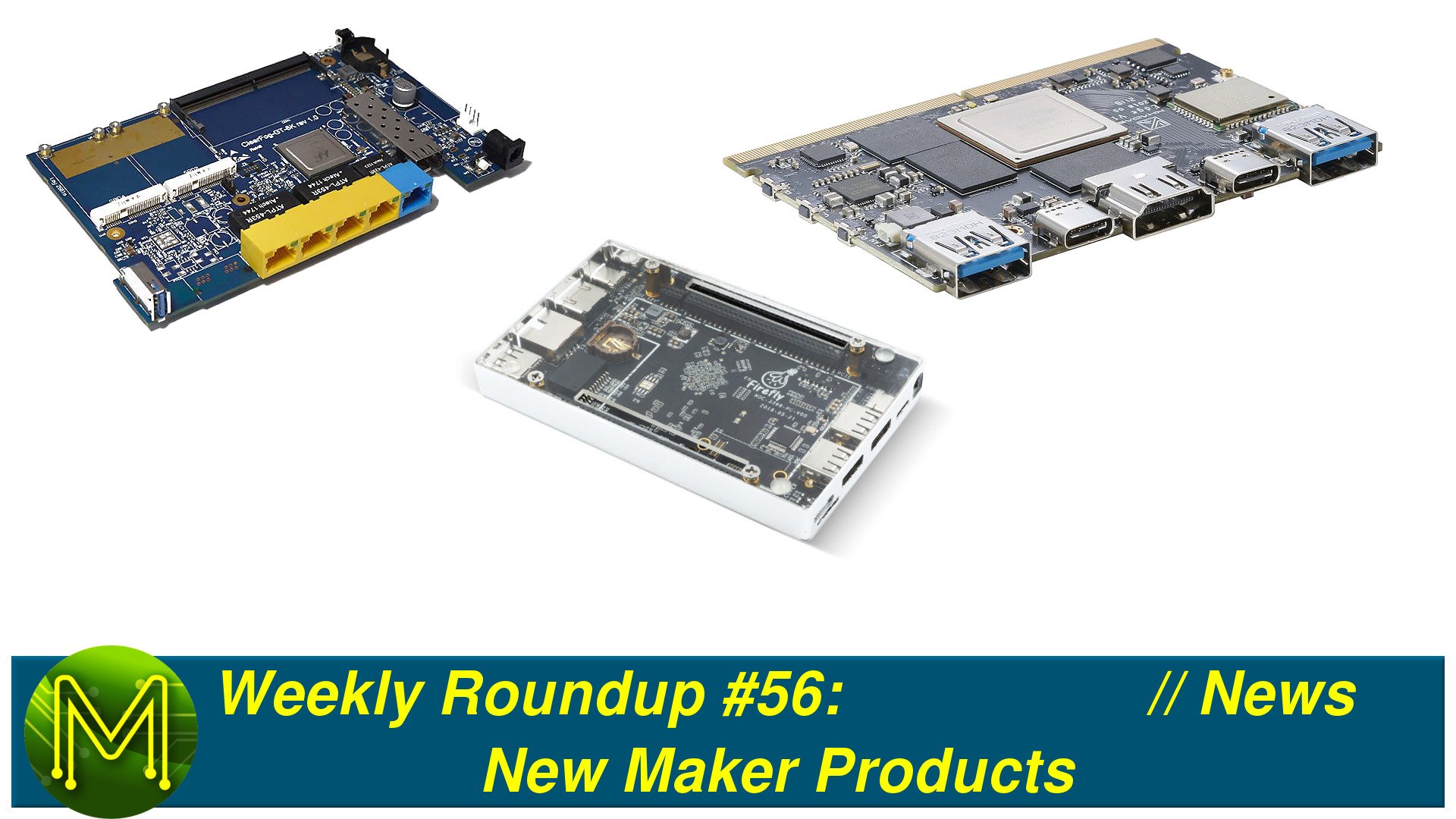It’s pretty quiet in this week’s Weekly Roundup, especially on the Crowd Funding side, but we certainly do have wiffeys.
ERROR:not .src - map[alt: class: control: ctx:0xc001eabb80 height: href: id:WLL9t9TLIFc inline: size: span: src: style: thumbnail: title:Weekly Roundup #57: New Maker Products // News width: xml:]
Crowd Funding
KickStarter
There’s not much happening over at Kickstarter, but …
here’s a campaign that’s an update on an older one.
It’s a board that does all the hard work of controlling stepper motors for you.
It contains an ATmega328PB MCU, intelligent stepper driver handling acceleration and velocity control, high accuracy encoder, 5v LDO and breaking out 15 GPIOs.
It is also housed on the back of a Trinamic TMC2208 stepper motor and the whole shebang is powered from 6.5 to 12v DC.
The Tachyon is yet another campaign for a SAMD51 breakout board from Rabid Prototypes. It has all the MCU support components, standard ISP header and pushes out 24 GPIOs for you to play with. It doesn’t seem to be gaining much support, shame really, they do come out with some decent boards.
IndieGoGo
Nerdonic are back again on IndieGoGo with a slightly larger version of their Exen called the Exen Proto.
This is the same as the Exen Mini, running the SAMD21, but with 21 GPIOs pushed out.
Crowd Supply
Over at CrowdSupply there’s a USB-C power adaptor tester in pre-launch.
It’s primary use-case is testing, validating and debugging USB Type-C power adaptors. Has a GUI that displays voltage, current and general information on power adaptor performance. It can also perform automated testing for production setups.
GroupGets
Honorable mentions
One thing that is lacking on the Pi is decent hardware based security. The Zymkey looks to address that by providing key storage and generation, encryption, RTC and a True Random Number Generator.
They have APIs supporting Python, C and C++, but can also be integrated with apps like, LUKS file encryption, OpenSSL, AWS IoT and Etherium Blockchain.
For those getting excited about another source of crypto horse-power for Mining, don’t get too excited. I doubt it’d have the grunt to be viable.
Back in Weekly Roundup #52 we saw the Neutis N5. It is a promising module. Contained in a tiny 41 by 30mm package is an Allwinner H5, 512M DDR3 RAM, 8G eMMC, WiFi, Bluetooth and pushing out 80 pins supporting 38 GPIOs, 100MbE, audio and HDMI.
They are now putting up the module and dev board for pre-order with shipping due the end of August.
Let’s see if they actually can deliver this one on time.
The Linux Kernel is starting to see more mature support for a lot of the ARM based SoCs out there. Last month we saw kernel 4.17 released which included driver updates for Allwinner, Amlogic, Mediatek, Samsung Rockchip, and Qualcomm SoCs as well as introducing new support for a bunch of other SoCs like the STM32MP157.
Kernel 4.18 now brings in support for the Snapdragon 845 and am335x which runs the PocketBeagle, as well as more fixes and support for ARM hardware.
There’s really a heck of a lot of changes. In summary; better support for all these ARM based SBCs we’re seeing.
And talking about better graphics driver support, we’re starting to see a lot of work done on supporting the Amlogic SoCs.
There was recent support added for video decoding and rendering into the Linux kernel via patchset. So, if you’re willing to hack around, you could pull the kernel, apply the patch and test it out.
Maker Shops
Tindie
If you saw my LoRa SMS project, you would have seen how easy it is to send text messages between mobile phones without a mobile network. All you need is two units containing a LoRa module and a small MCU and you’re done.
Seems someone else has cracked on to the idea and have made it into a polished product. This one contains all the goodies such as LiPo battery charging, selectable encryption keys, front panel LCD for message display and access point connectivity for your phone. Looks good.
If you want an all-in-one sensor Arduino shield then this one has temperature, humidity, barometer, altitude, air quality as well as UV, ambient light and infrared sensors.
Also has a header for a Nokia LCD.
The PiLC is a Pi hat that provides opto-isolated GPIOs. It can handle up to 24v inputs and 60v outputs as well as being able to interface with industrial current loop sensors such as flow meters and thermocouples.
LoRaWAN gateways tend to be on the pricey side, this one is still a little pricey, but it’s an open source unit, which gives it extra points.
It can be configured in several gateway modes, transferring MQTT messages, LoRaWAN connectivity, local direct TCP/IP server and client as well as a plain LoRa repeater.
It provides the two channels using two independent LoRa modules and also has USB for 4G modem and dual RJ45 ports.
The SCLD is a small solar charger board for 1SxP LiPo batteries that will also drive LEDs at night. A good replacement for those dodgy garden lights that never work after a week.
The wide 5 to 45v DC input range means you can use it on pretty much anything and charge at up to 1A. There’s over-voltage and over-current protection and there’s also a Joule Thief output allowing you to power LEDs with increased battery life.
If you run a CNC, then you’ll be aware of how much electrical noise can be injected into the system from motors and switches. This simple board provides a bunch of opto-isolated inputs minimizing limit switch input noise.
Back in Weekly Roundup #47 we saw Stefan Kremser’s popular ESP8266 Deauther, which employs a bug in the WiFi protocol allowing it to cause havoc on WiFi networks. Essentially it de-authenticates a device, causing it to have to re-authenticate, making WiFi completely unusable for that device.
Travis Lin has come out with a modified version of the Deauther which puts it into a handy wristwatch. Nice.
Here’s another DC boost converter, but this one steps up a 12v DC input with a variable output of up to 60v. You can also control the output current, handling up to 10A, which is pretty cool. Even though it’s an aluminium based PCB, you’ll definitely need a heatsink at that current level.
If you’ve got a few spare GPIOs left and want a jog shuttle style input control, then this is a simple board with a rotary encoder. However, unlike the I2C encoder Kickstarter, you’ll have to do all the work on the MCU.
This next one is yet another ESP based board, but is designed to control door-locking mechanisms.
Powered from a 12v/2A DC supply, it has an RFID Wiegand Reader and terminal blocks for connecting to magnetic door locks. There’s also a programming header and a couple of extra GPIOs broken out.
Just a reminder I’ll be shortly ordering a bunch of the PiProjector Rev 2 series boards. So if you want to be part of that first batch, add your name to the waitlist to be notified when they come in to stock.
An Ozzie Maker, Seon from Unexpected Maker, has put up his Reflow Master on Tindie. This allows you to hack your toaster oven to turn it into a Reflow Oven.
The kit comes with PCB, TFT screen and thermocouple. However, you’ll need to be able to do some hacking with your toaster oven. So I suggest watching his YouTube videos on how to do that.
We’ve seen a huge amount of LoRa based cards, but this one is pretty cool.
Not only does this board have a standard SX1278 LoRa module, but an STM32 allowing connectivity via standard M.2 edge connector. Nice!
It comes pre-loaded with software based on STM32Cube HAL and speaks LoRaWAN 1.0.2 with control via standard AT commands. You can re-program the firmware to support your country’s ISM frequency band and everything is open-source and open-hardware.
AdaFruit, Seeed, SparkFun, DFRobot, DigiKey
Early last year I predicted 2018 as being the year of the FPGA for Makers as it’s the next evolution for Maker projects.
Luke Valenty is one of those people behind this next evolution by providing small breakout boards for cheap FPGAs called the TinyFPGA.
He’s now going full-steam ahead with these boards and you can now pick them up on SparkFun.
Well OK, it’s on back-order, so you’ll have to add your name to the waitlist.
The TinyFPGA BX contains an ICE40LP8K FPGA, 8Mb SPI flash to hold the FPGA code and 3.3 and 1.2v LDOs.
It breaks out 36 GPIOs from the FPGA and programming is via USB. He’s put in a great amount of effort with these boards. It comes pre-installed with an open-source boot-loader and he’s enabled a number of HDL design tools to be able to program it.
Nice.
He also has the TinyFPGA AX2, which is a cheaper version running the same FPGA, but without USB and LDOs…
… which you’ll need the programmer for.
Over at AdaFruit they have a handy color coded Pi header. Just the thing to avoid having to count pins.
and they also have a bunch of CD spindle motors in. I have no idea where they got them from, but AdaFruit have at least 100 of them in stock.
What can they be used for? Don’t ask me, but I might pick up a couple for a rainy day.
If you’re in to sniffing Bluetooth, then this might be a handy board. It contains the nRF51822 allowing you to sniff and capture Bluetooth 4.0 traffic using tools like WireShark.
If you want to power your Pi over PoE, then AdaFruit have a PoE module in stock. Great idea for a low cost solution if you don’t mind extra cables dangling off the board.
Note also that this board does not support the official PoE protocol, but the regular hacked version that we’re seeing a lot of these days.
Over at Seeed Studio they have the LoPy4 in stock. This was a board that was released early in the year by PyCom and provides LoRa, SigFox, WiFi and Bluetooth wireless protocols. It’s mainly designed for for running MicroPython with a full API supporting it, but can also be programmed using bare-metal. Although you’d miss out on the cool API.
Seed also have in stock an nRF52840 breakout board. This is a big step-up from the nRF52832 IC and provides 802.15.4, which is a short range wireless protocol similar to ZigBee, 256kB RAM instead of 64, 1MB flash instead of 512kB, on-chip PA boosting output power, CryptoCell, QuadSPI and USB.
This board has LDO, USB hub supporting DAPLink over virtual COM, 64Mb QuadSPI flash and breaks out 24 GPIOs. This little baby will support a plethora of wireless frameworks.
Over at DigiKey you can pick up a newer revision of the ESP32-WROVER module.
The ‘B" version provides an additional 4MB RAM boosting it to 8MB. It also has 4MB SPI flash, the same 240MHz ESP32 SoC and 34 GPIOs pushed out supporting Ethernet, 4bit SDIO, SPI, I2C, UART and other stuff you expect to see.
DigiKey have it for US$8.44 at one off quantities or you can pick it up from Mouser for US$4.20 at 650 quantities.
The Cheap Side
Over at BangGood they have the LicheePi Nano. This is a tiny SD card size board running an Allwinner F1C100 SoC. This is a fairly old SoC with only 32M RAM and support for USB, SPI, UART and H.264 video decoding, but bang for your buck is still pretty good. For US$10 you get a board pushing out 38 GPIOs, MIPI-DSI, USB and SD slot. Runs off 5v at only 54mA quiescent current.
They also have in the TS80 portable soldering iron. It’s a fairly decent one, with a fair amount of talk about it over at EEVBlog. It runs an STM32 controlling the OLED display, temperature, standby and sleep modes and it’s powered from USB Type C. The tips are changed using an audio jack style connector as you’d find on more expensive irons.
Haven’t had these guys on for a while. ICstation have a small breakout board that provides MP3 decoding from an SD card. It runs the XY-V17B IC.
What the heck? Sounds like someone just mashed the keyboard to come up with that name.
Anyway, access is over UART, but also supports 8 inputs that trigger playback of different mp3 files.
We’ve seen a number of charge controllers around, but this one has a snazzy LCD display. Powered from 6 to 60v, it also has some basic charge protection and can also be controlled over UART.
This is a pretty cheap 2.4GHz based frequency remote control kit that supports 6 channels. The transmitter runs off a coin cell battery, so not the world’s best voltage levels, but you may be able to squeeze it to 3.3v for interfacing to an MCU.
And the receivers from 3 to 12v.
Here’s another option if you want to DIY your own PoE for your Pi. This one will accept 24v in and deliver a steady 5v at 3A. They say in the notes that 3A is max, so may or may not be enough for the Pi, but at $1 a pop… Yeah, think I’ll get a couple.
Over at AnalogLamb they are taking a stab at the STEM education market with the Fish32. It’s an ESP32 based board with a bunch of features like; 100MbE, LoRa, SD slot, dual-H-bridge ICs, and several open-drain GPIOs. It also has 9DOF IMU, proximity, light colour and gesture sensors.
Even though they have labelled it as an educational board, AnalogLamb haven’t yet come out with any courses or lessons.
Making a board is the easy part, documenting it properly is ten times harder,
making educational courses around it is ten times harder than that.

